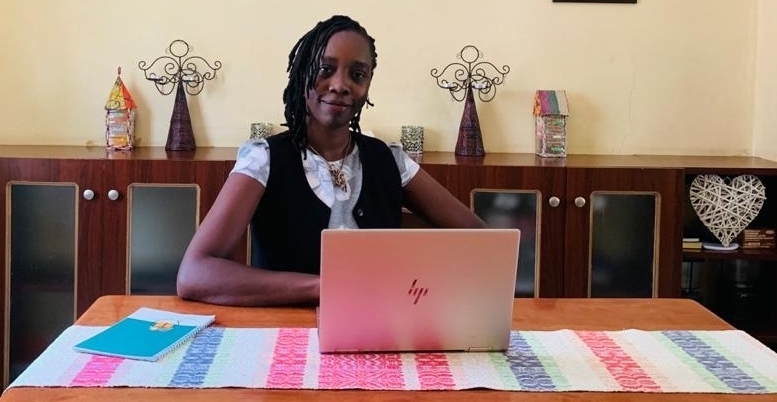
Five Questions with Laura Nelima Barasa, lecturer at the University of Nairobi, School of Economics and certified European Investment Bank-Global Development Network fellow in Applied Development Finance. Laura has investigated the impact of mobile-based customer relations software on small business performace in Kenya, and is a speaker at the online conference, ‘Assessing the Development Impacts of Private Sector Impact Investments’ on 2-4 Dec, 2020, co-hosted by The European Investment Bank (EIB) and Global Development Network (GDN), and held in partnership with The Campbell Collaboration.
Q. What are the problems facing small businesses in Kenya?
Small businesses in Kenya are often in the informal sector. In most cases, managers lack training and mainly learn through trial and error. Lack of adequate financial resources and limited access to credit are also major problems. Furthermore, the rapidly changing technological landscape has substantial cost implications in terms of adoption. In addition, business located in rural areas lack basic infrastructure such as electricity, which means that they cannot enjoy the benefits of the Internet and similar technologies. Lastly, small businesses encounter many rules and regulations that are costly in terms of time and money; this poses a threat to business growth.
Q. What were the main aims of your study?
The study aimed to investigate the factors that contribute to the adoption of web-based and mobile-based customer relation management (CRM) software and its impact on business performance in Kenya. Mobile CRM software is an innovative customer feedback technology in Kenya introduced by Ajua Limited in 2015. It leverages on the use of mobile money payments to solicit for customer feedback through the short message service (SMS).
Q. Was the business or your study impacted by the Covid-19 pandemic?
Yes, and for the better. While our study had initially focused on web and mobile CRM, the pandemic brought about regulatory changes regarding the use of mobile money for transactions. Businesses were urged to adopt mobile money payment mechanisms to prevent the spread of the virus. The pandemic has changed how businesses interact with customers as transactions become digital. This has strengthened the relevance of our study during these challenging times.
Q. What were the main findings of your study, and were there any learnings that you can share with other evaluators?
First, firms that had an information technology (IT) department were more likely to adopt CRM software. Large firms and firm facing intense competition also had a higher probability of adopting CRM software. On the impact of CRM software on business performance, we found that CRM increased sales and the number of customers.
Some of the learnings I picked during the study include the importance of remaining flexible in terms of expectations and the study methodology. While it would have been great to share an online survey instrument with businesses, this was not always possible. We observed that most respondents preferred meeting us during data collection. Checking in with other evaluators in similar contexts also helped us figure out what works especially in terms of understanding industry expectations.
Q. What was the single most interesting input you received from GDN to help you complete this impact evaluation?
The communications training was the most interesting! I drew a lot on what I learned to communicate appropriately and effectively, especially when our team faced some of the challenges at the critical stage of data collection. We resolved these issues and were able to proceed with our data collection and analysis, which resulted in a complete research report.
Find out more
- EIB-GDN Program in Applied Development Finance. A program funded by the European Investment Bank until December 2020. Contact abhayg@gdn.int for details
- Find out how the TLcom TIDE Africa Fund works.
- Attend the online #measuringimpact #impactinvesting conference, ‘Assessing the Development Impacts of Private Sector Impact Investments’ on 2-4 Dec, 2020, co-hosted by the European Investment Bank (EIB) and Global Development Network (GDN), in partnership with The Campbell Collaboration.
In correspondence with Madhuri Dass Woudenberg, Head of Communications at the Global Development Network, in November 2020.





